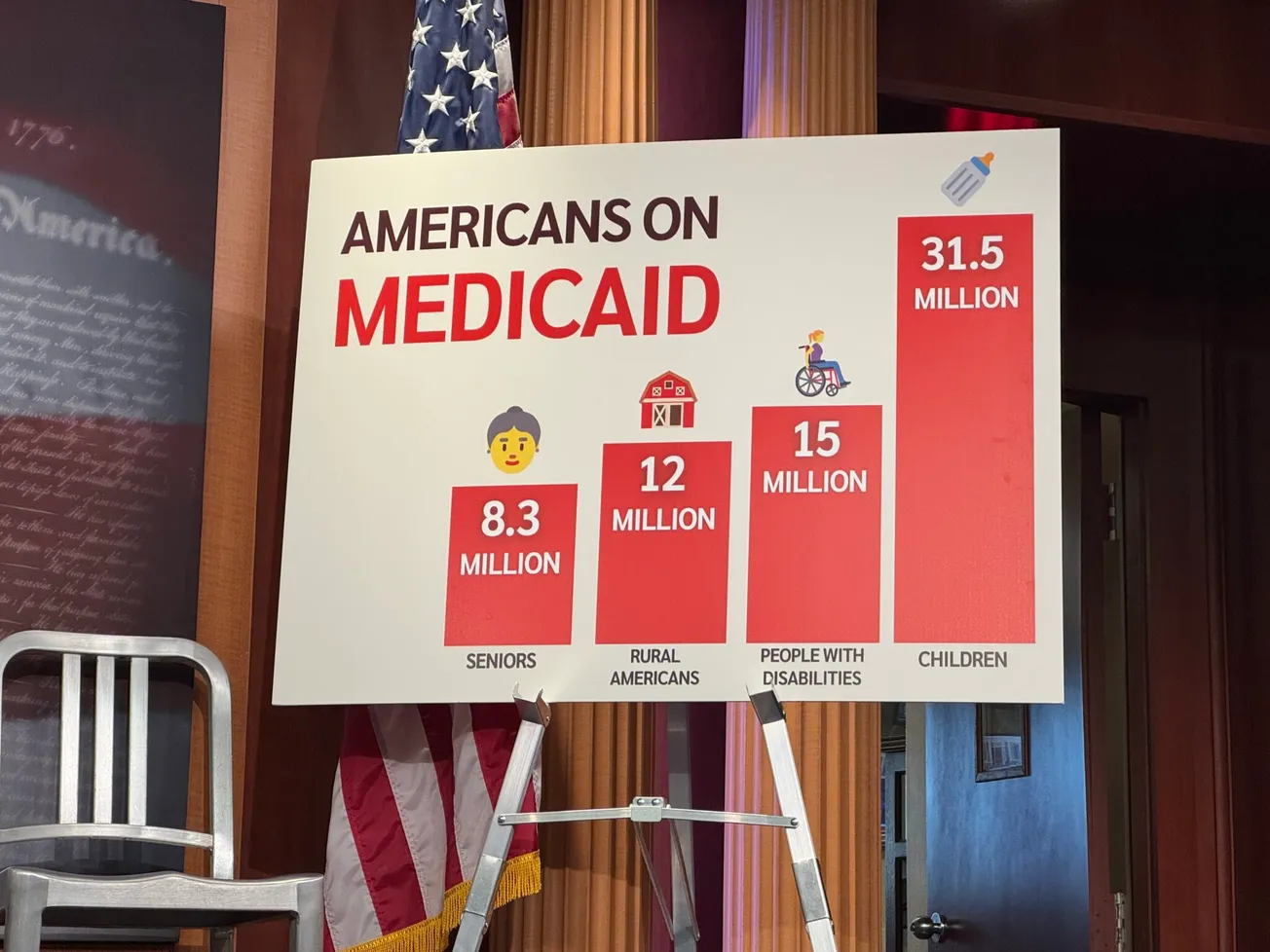By Christopher Ingraham
Welcome to The Topline, a weekly roundup of the big numbers driving the Minnesota news cycle, as well as the smaller ones that you might have missed. This week: health coverage losses due to congressional Republicans’ cuts; UnitedHealth in free fall; the young children dying to fentanyl; EPA funding to clean up polluted sites; and a bad year for rail.
Tens of thousands of Minnesotans on verge of losing health insurance
Roughly 150,000 Minnesotans would lose health insurance under congressional Republicans’ plan to cut funding for Medicaid and other social services, according to an estimate released last week by Democrats on the Senate Joint Economic Committee.
Roughly 110,000 of those losses would come from Medicaid cuts, with an additional 40,000 losing coverage due to cuts to Affordable Care Act funding.
All told, roughly 13.7 million Americans would lose health insurance coverage under the spending proposals currently being debated in Washington. The numbers are derived from an analysis by the nonpartisan Congressional Budget Office. Under those proposals, any cost savings from the reduced Medicaid and ACA spending would be more than offset by expanded tax cuts, primarily benefiting the rich.
On net, the GOP tax bill is currently expected to add roughly $3 trillion to the federal debt over the next decade.
UnitedHealth is having a very bad year
Minnesota-based UnitedHealth, one of the largest corporations in the U.S., has shed roughly half its value on the stock market in the past month.
In the past week alone, CEO Andrew Witty stepped down, and the Wall Street Journal reported the company is under criminal investigation by the U.S. Justice Department over potential Medicare fraud.
UnitedHealth is one of just 30 companies that make up the Dow Jones Industrial Average, so its ongoing slide is having a disproportionate impact on perceptions of the economy’s health. The overall Dow is up roughly 5% over the same period UnitedHealth has fallen by half.
The company received national attention and scrutiny after the murder last year of Brian Thompson, an executive in charge of its health insurance division. The company has also been the subject of an ongoing investigation by health and medicine news organization STAT over its use of unregulated algorithms to deny patients care and juice profits.
Fentanyl has killed 23 Minnesota kids under the age of 8
A KARE 11 investigation finds that since 2000, 23 Minnesota infants and children under the age of eight have been killed by accidental fentanyl ingestion.
The investigation details the story of one fentanyl-addicted mother who left out foil containing residue that her one-year-old daughter ingested. That mother was convicted of second-degree manslaughter and sentenced to two years in prison, plus additional time on supervised release.
Nationwide, accidental pediatric fentanyl exposures are rising: The nation’s poison control centers report there were 120 exposures in 2020, and 539 by 2023. Not all exposures are lethal, but the drug’s high potency means that the ingestion of even a minuscule amount can pose a threat to a child’s life.
Pre-natal exposure, when an infant is exposed to illicit substances in utero due to the mother’s drug use, is also a problem, with more than 1,100 cases in Minnesota in 2023 (drug-specific breakdowns aren’t available in the data, which come from the federal government).
EPA awards more than $2 million to clean up polluted sites in Minnesota
The Environmental Protection Agency recently announced $2.2 million in funding to clean up contaminated sites in Minnesota. The sites include a former landfill in Duluth, as well locations in Minneapolis, St. Paul, Willmar and Cass Lake.
“The $267 million in Brownfield grants will transform contaminated properties into valuable spaces for businesses and housing, creating new opportunities that strengthen local economies and directly benefit American families,” said EPA Administrator Lee Zeldin.
The federal agency recently cancelled tens of millions in grants for environmental justice initiatives in Minnesota and other Midwestern states.
The Northern Lights Express is on the ropes
Minnesota lawmakers voted over the weekend to pull $77 million in funding from the proposed Northern Lights Express rail line to Duluth and direct it toward unemployment insurance costs for hourly school workers.
The project, which lawmakers initially funded in 2023, had been dependent on federal funds to move forward. Those funds never came through, and the current budget crunch in St. Paul made the previously-earmarked funds irresistible to lawmakers looking to plug holes elsewhere.
House Republican Transportation Chair Jon Koznick spiked the football: “With the House and Senate voting to shift a significant amount of the state’s share of the project’s funding, the Northern Lights Express train is effectively dead, and taxpayers are better off because of it.”
Sen. Jen McEwen, DFL-Duluth, said on the Senate floor on Sunday she’s holding out hope that it will happen one day.
“Although we are making a substantial cancellation because of this austerity that is being imposed upon the people of Minnesota … the Northern Lights Express project is still alive,” McEwen said.
It’s been a tough year for rail: several months ago the Metropolitan Council and the Minnesota Department of Transportation announced plans to convert the struggling Northstar rail line to bus service.
Minnesota Reformer is part of States Newsroom, a nonprofit news network supported by grants and a coalition of donors as a 501c(3) public charity. Minnesota Reformer maintains editorial independence. Contact Editor J. Patrick Coolican for questions: info@minnesotareformer.com.






